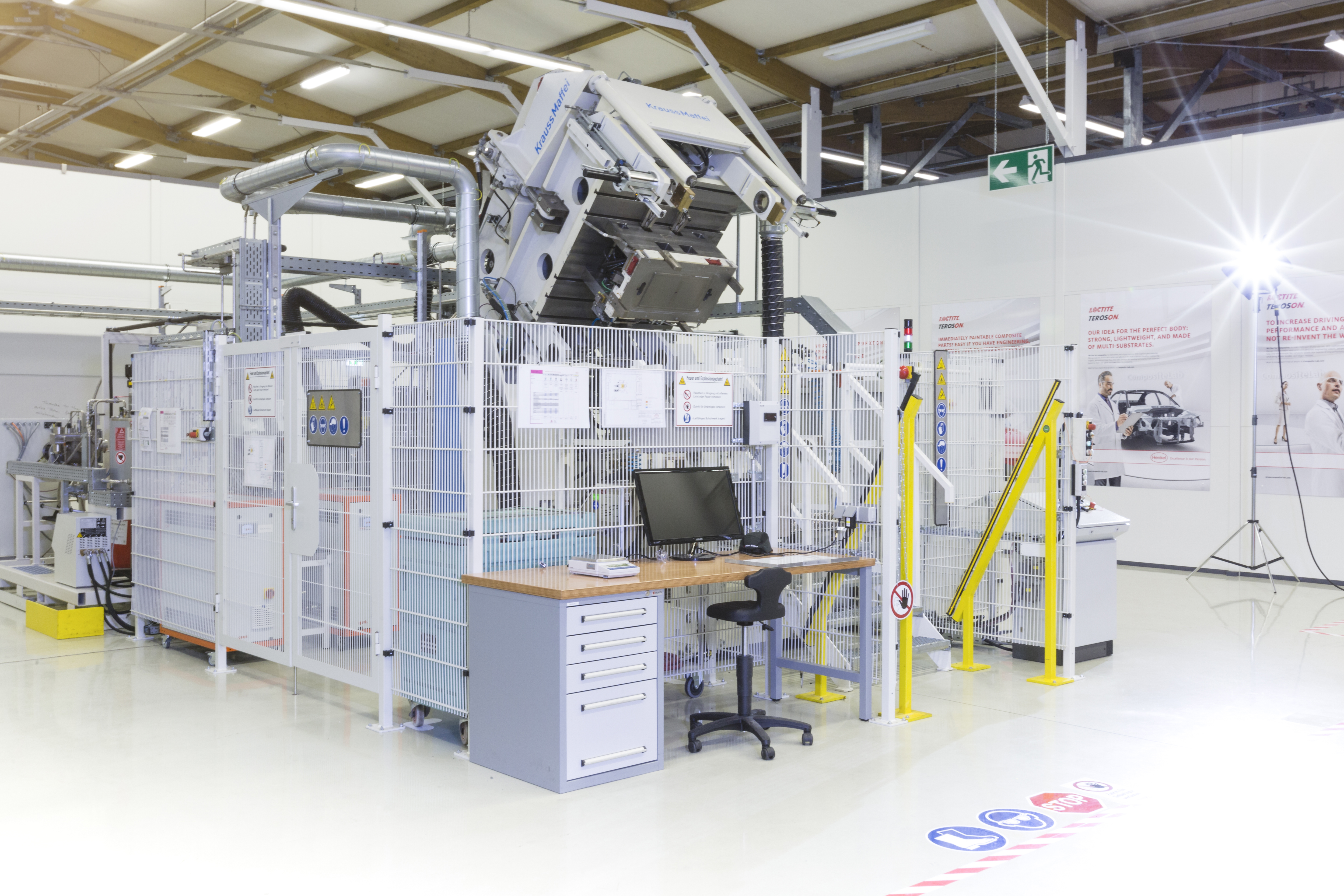
Automotive giant Volvo reports that it is adopting high performance, lightweight composite transverse leaf springs for more models following their introduction several months ago on its XC90 SUV. Volvo is now also using the parts in its S90 sedan and V90 station wagon models.
The leaf spring is made using Loctite MAX 2 flagship two-component polyurethane composite matrix resin system from chemical company Henkel, produced by composite specialist Benteler-SGL using high-speed resin transfer molding (RTM). Total volumes could reach close to 200,000 per year by the end of 2017.
In all three car models, the transverse leaf spring incorporated into the rear suspension saves 4.5 kg compared to steel coil springs normally used in cars, leading to a reported improvement in fuel efficiency and a reduction in carbon dioxide emissions. The leaf spring also helps provide a smoother ride and improved NVH (noise, vibration, harshness) behavior. By eliminating coil springs that would otherwise protrude into the trunk area, the transverse leaf spring leaves more space for luggage.
New processes
‘The composite leaf springs are another example of how a close cooperation between our partner Henkel and us in development of new processes and matrix resins — as well as adhesives and binders — can lead to the successful large-scale production of new composite concepts,’ said Frank Fetscher, business development manager at Benteler.
This story uses material from Henkel,with editorial changes made by Materials Today. The views expressed in this article do not necessarily represent those of Elsevier.



